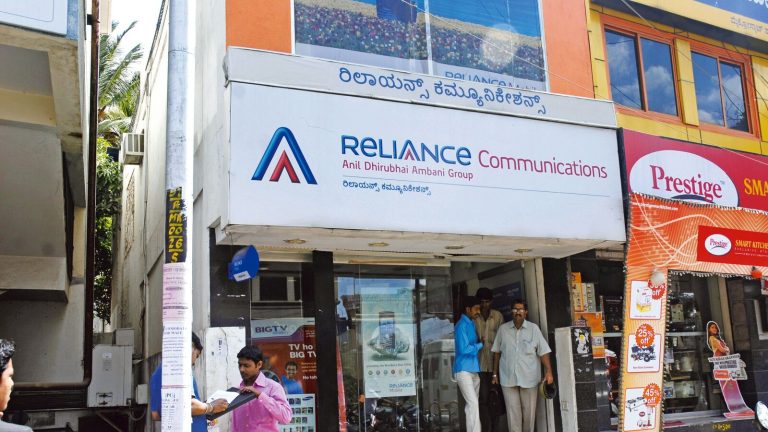Nearly six years since Sweden’s Ericsson won ₹550 crore dues from Reliance Communications Ltd (RCom) following a Supreme Court order, the bankrupt telco’s demand to return the money is coming up in court. On Thursday, the Mumbai bench of National Company Law Tribunal (NCLT) will hear RCom resolution professional’s petition that the Swedish company is an operational creditor, and paying it first while financial creditors wait would be a case of preferential treatment.
Once among India’s leading telecom operators, RCom could not survive a brutal tariff war that began in 2016, and filed for bankruptcy in 2019. Ericsson won its dues after a court battle the same year, but the story did not end there—the RP had sought refund of the money in the same year, which Ericsson rejected.
In a court petition this week, RCom’s resolution professional Anish Nanavaty of Deloitte said, “…payment to the respondent amounts to a “preference” as the said payment has the effect of putting the respondent in a beneficial position vis-a-vis the other creditors of the corporate debtor in the event of distribution being made under liquidation of the corporate debtor. The respondent here refers to Ericsson while the corporate debtor is RCom.
Ericsson is in no mood to give in.
Read more: Telcos warn of network rollout delays as states lag on infra rules
“The demand for refund is an abuse of process of law inasmuch as the settlement and undertaking was in an order passed by the Supreme Court under Article 142 of the Constitution of India,” Anil Kher, senior advocate representing Ericsson told Mint. Article 142 allows the apex court to pass any order to ensure justice.
In 2019, Ericsson had asked NCLT to dismiss the petition “with exemplary costs”, calling it wholly misconceived. The company had also called the petition “motivated at the instance of the members of the Committee of Creditors who are also the Financial Creditors.” Nanavaty’s petition this week is a rejoinder to this.
Nanavaty did not respond to emailed queries.
How it came to this
In 2013, RCom and its subsidiaries Reliance Telecom and Reliance Infratel picked Ericsson to maintain their networks. The entry of Reliance Jio three years later sparked a tariff war, forcing most of the weaker players to fold up. In 2017, Ericsson took the telco and its subsidiaries to the insolvency court as dues rose to ₹1,500 crore. The case went from the National Company Law Tribunal (NCLT) to the National Company Law Appellate Tribunal (NCLAT), with the latter asking the telco to pay up by 15 December 2018. When the deadline was crossed, Ericsson filed a contempt petition against Anil Ambani, then chairman of RCom in the Supreme Court The two units were made parties to the case.
RCom was already sinking under debt of ₹46,000 crore, and besieged by local and foreign lenders including State Bank of India and China Development Bank. Its operational creditors included the telecom department, tower companies and equipment vendors. In early 2019, it filed for bankruptcy, and Deloitte was appointed RP.
In 2019, RCom paid ₹458.77 crore to the Swedish telecom equipment maker (about ₹118 crore was deposited earlier), clearing the outstanding dues. At that time, the former chairman, in a statement, thanked his elder brother and his wife—Mukesh and Nita Ambani—for their “timely support”.
However, RCom’s efforts to sell land, towers and spectrum to Reliance Jio and Brookfield fell through.
Read more: Trai, telecom companies spar over data demand
In the same year, a new battlefront opened up, when Deloitte moved NCLAT demanding a refund from Ericsson, calling it a preferential payment. The appellate court directed the parties to head to NCLT’s Mumbai bench. This matter has been resurrected and is expected to be heard on Thursday.
In 2020, RCom’s committee of creditors had selected UVARCL as the preferred bidder for RCom and Reliance Telecom, while Jio was selected for Reliance Infratel’s assets. However, the matter is also stuck in legal hurdles.


